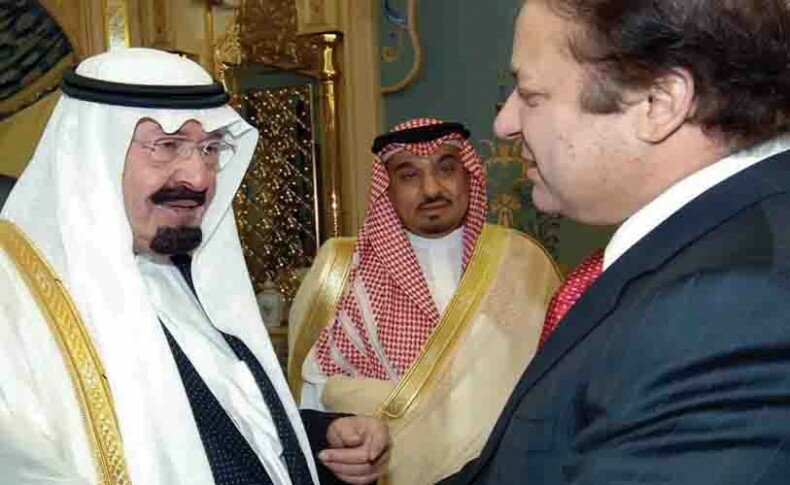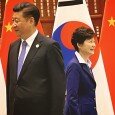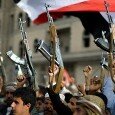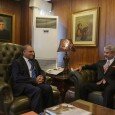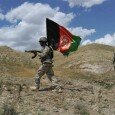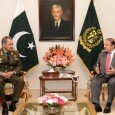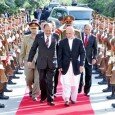By Faisal Raza Khan –
Sharif’s one-sided affair
After the 2013 general elections, it was widely assumed that Pakistan will gain much diplomatic purchase under Nawaz Sharif’s rule due to his personal relations with the Saudi royal family. Most analysts believed there would be more trade, massive investments in Pakistan, more export of manpower and so on. But, right at the start, we have witnessed the same old traditional way of showing brotherhood with supply of crude oil at deferred payment and some interest in military hardware, while on the other hand Saudi’s have purchased massive agricultural land in Punjab and Balochistan, introduced new labour laws like ‘Nitaqat’ to expel Pakistani labour force from Saudi Arabia and now a new law that prohibits Saudi’s from marrying Pakistani women.
Pakistanis are often categorized as inferior ‘commodities’ that can be bought and sold at any time. There is a clear and pervasive sort of racism, a form of Saudi supremacy that views their own people as superiors, other Arabs as secondary and South Asian including Pakistani expatriates as third-rated, third-class and third world people, fir for menial labour.
While overseas Pakistani workers are a great source of remittances, especially those who are employed in the Kingdom, everyone knows that they are discriminated against and have little or no rights in the holy land. Pakistani workers are experiencing a modern form of slavery in Saudi Arabia, there is a clear segregation in law between an Arabic and non-Arabic (Ajami), Pakistanis like to criticize Europe’s hostility to immigrants but the anti-immigration feelings in Saudi Arabia are deeply toxic, but surprisingly never criticized.
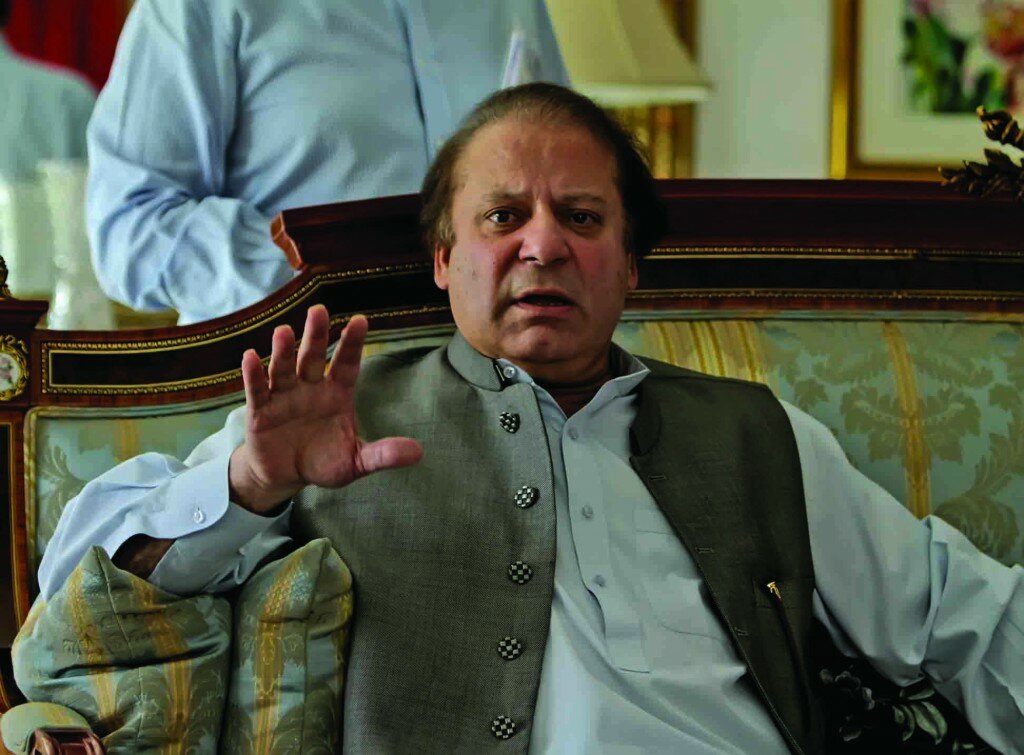 The question then arises, what diplomatic gains has the Sharif family actually gotten for Pakistan? Just the soft gains of monetary assistance in the form of cash gifts?
The question then arises, what diplomatic gains has the Sharif family actually gotten for Pakistan? Just the soft gains of monetary assistance in the form of cash gifts?
During recent years, when the Riyadh-Tehran tension was on the rise on issues of Bahrain, Syria and sectarian uncertainty in eastern Saudi Arabia, the deeply-rooted security partnership between Pakistan and Saudi Arabia became imperative again, not just at the state level but also asked at the level of non-state actors like al-Qaeda and Taliban. Our military sent small arms to Syria and Iraq via Turkey and Jordan, while sending military brigades to Bahrain to crush the peaceful movement against the Kingdom’s. In return Pakistan got a $1.5 billion gift, free crude oil and also refurbished F-16’s from Jordan.
A Saudi ambassador to the United States and foreign policy advisor to King Abdullah bin Abdul Aziz, Adel bin Ahmed Al-Jubeir, unabashedly once stated that, “We, in Saudi Arabia, are not observers in Pakistan, we are participants.”
Yes, Saudis are participants in Pakistan, they are using this country for their own goals, whatever is happening now is not new. Saudi’s have played a similar role in past decades during the Soviet invasion in Afghanistan. When Pakistan became a haven for bombs, blood, heroin and Kalashnikovs, the same Saudi’s were the one’s funding the movement of these guns, drugs and militants.
Much of the violence and sectarian hatred prevalent in the country right now has been fostered on Saudi patronage. Even today, the Kingdom is launching similar sectarian based Jihadi projects in the middle-east and gulf. Jeddah is countering the ‘Arab Spring’ by buying-off Arab militants, supporting dictators and issuing fatwas against the protestors. Pakistan is very much a supporter of these oppressive measures, providing guns and logistics, and exporting militants.
The strategic discussions between Saudi Arabia and Pakistan on a wider defence co-operation could lead to the first deployment of Pakistani troops to Saudi Arabia in years, because ‘Hijaz’ is feeling insecure on its southern border with Yemen, and in the north near Syria and the Gulf. The renewed Iranian-US engagement is another factor influencing the new strategic defence co-operation agreement between Islamabad and Jeddah, including a rumoured nuclear weapon deal.
Today, if we destroy or become a party in destroying the social and political fabric of Bahrain, Syria or Iraq, what violent backlashes will we face, akin to the one’s we have faced from across the Afghan border?
Are there any non-violent gains to be made here? What have we achieved so far with the Saudi’s, why hasn’t our trade volume enhanced with Kingdom? When the US is accused of meddling in Pakistan’s internal affairs, at least our number crunchers have large amounts of financial aid to show for it. Where exactly is the broad based reciprocity with the House of Saud?
Prime Minister Nawaz Sharif visited the kingdom on 20th July this year during the holy month of Ramzan to perform an Umra. Apparently, it was a private visit but Sharif met with King Abdullah and discussed the Pakistan Tehreek-i-Insaaf long march, the unstable internal political situation, the military operation in North Waziristan and Parvez Musharraf’s trial. King Abdullah advised PM to softly deal with the political situation while offering amnesty to General Musharraf, he discouraged Nawaz from picking a fight with the military.
Here is a conflict between personal and national interests, what the Sharif family has gotten out of their strong bonds with the Saudi monarch is much different to what Pakistan is getting out of this fraternal relationship.
Pakistani decision-makers should recognize that no bilateral partnership is permanent and shifts can quickly become rifts. Ties with Riyadh will be indirectly shaped by Saudi Arabia’s eastward economic push, the Kingdom is improving its relations rapidly with China and India, selling more oil to these countries than the US. We claim to be close friends of Saudi Arabia and China, but we are yet to gain much out of this potential triumvirate of friendly diplomacy.
We have to start forging a non-oil-security, non-personalized diplomacy with Saudi Arabia, based on an economic partnership, the Kingdom has a sovereign wealth fund of nearly half a trillion dollars, we should have to invite Saudi Arabia to invest in our major national level projects like Gawadar, the Sino-Pak economic corridor and other projects that involve China as well.
It would be a very naïve approach if we only hover around bartering military cooperation or food for cheaper oil, Saudis can make sizable profits from Pakistani education, infrastructure, oil and gas, energy, information technology, transportation, communication and aviation sectors and by bringing Saudi investment, Pakistan can generate employment, ease socio-economic pressure, and ultimately give benefits to democracy and bring political stability.
But all this needs Pakistani leadership to start thinking out of the box before they get boxed-in.
The writer is an Islamabad based diplomacy and foreign policy correspondent.





















































































